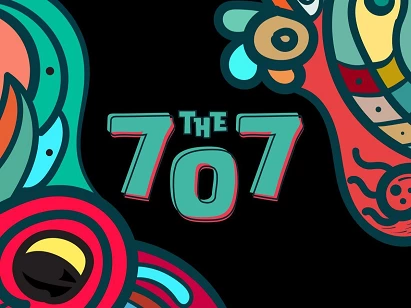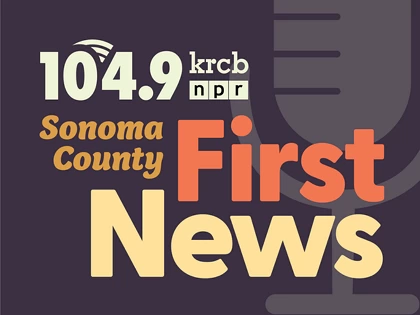 photo credit: Courtesy of Christyne Davidian
photo credit: Courtesy of Christyne DavidianGuests enjoy Armenian delicacies at a weekend picnic
in Petaluma.
Earlier this month, for the first time since the Covid pandemic began, people of Armenian descent from across the Bay Area gathered on a farm outside Petaluma for an annual picnic, one of scores of cultural groups composing the American mosaic.
Christyne Davidian, a co-founder Armenians of the North Bay, and co-president of the Alliance for the Study of the Holocaust and Genocide at Sonoma State University, helped organize it.
"We celebrate our, our, as you saying a diaspora, we celebrate that we're up here and alive ad doing well as a community, we have Armenian food, music, we dance, and we just enjoy being together and a coming together every year and making connections," Davidian said.
But international news in part overshadowed what should have been a joyous social gathering. With a homeland in the Caucuses, Armenia has for centuries been at the crossroads of empires, and at their mercy.
The times and names have changed, but the precariousness has not.
Recently, there's been new violence, and thousands again fleeing their homeland.
"There were some people that said, 'hey, are you going to cancel the event because of what's happening?' and I thought, no, we, we can't just stay home and cry about this, we have to come together as a community and do something," Davidian said.
Historically, it was Persia, Russia and the Ottoman Empire battling for spheres of influence, culminating in the Armenian genocide during the First World War.
With the breakup of the Soviet Union three decades ago, a new growing power emerged, fueled by enormous oil deposits and the political clout it bestows. Azerbaijan.
The two have fought in the past. According to Davidian, a 2020 war resulted in Azerbaijan seizing two-thirds of an Armenian exclave--Nagorno-Karabakh or Artsakh in Armenian-a part of Armenia surrounded on all side by Azeri territory.
"There was a blockade, in December, at the one corridor that goes between Armenia and the Republic of Artsakh, the Azeri's blockaded it there was supposed to be Russian peacekeepers for the next five years, they left, so nine month blockade, brink of famine, no food or medical supplies," Davidian said. "And then all of the sudden, last week, they attacked and within two days Artsakh surrendered and now, there's a massive exodus. I've heard anywhere between 10,000-13,000 have arrived in Armenia, the prime minister announced that they would take 40,000. There's a 120,000 Armenians who are now destitute in that area. If they leave, they lose all of our antiquities, all of the homes, all of the businesses, everything that had been established. Its so disturbing, this whole thing, every day its something different. There was actually an explosion today, they dropped a bomb on a fuel depot, so how, how do they get fuel to leave?"
So, the local Armenian community is mobilizing.
"We've heard the best thing to do is to fundraise money and send money," Davidian said. "They don't need materials, clothing. We're working on figuring out ways to do fundraising, we're also getting together a list of vetted NGOs that are going to be providing programs to help the Artsakh people coming to Armenia. One of them, which immediately comes to mind is the Armenian Relief Society, which we call the Armenian Red Cross."
According to the Associated Press, as of Tuesday, 28,000 people, or 23% of the population, have fled the exclave. The AP also reported this week that Azeri authorities have arrested Artsakh's deposed leader as he tried to cross into Armenia.
For Davidian, whose grandparents survived the extermination campaign carried out by the Ottoman Empire a century ago, current events are producing uncomfortable echoes.
"I'm the last generation that actually touched and knew a person who survived, there's a lot of trauma associated with that," Davidian said. "So when this happens, I'm witnessing the same thing that my grandparents went through--many, many, many of my relatives, just dozens of my relatives that perished in the genocide-- we're witnessing over and over again, it's traumatic for Armenians to continue to go through this, it's like it never ends. So, it's difficult. It's emotionally difficult, but we are strong, we continue to survive and we do what we can by tying together the way they we do."
Davidian said an internal town hall meeting for the Armenian community is being held in San Francisco this week. Two groups she mentioned that have organized an online letter writing campaign are the Armenian National Committee and the Armenian Assembly of America.

 Live Radio
Live Radio




